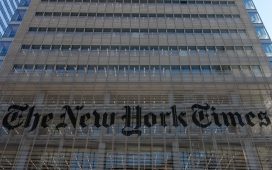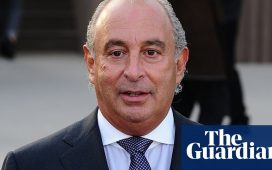Throughout the 100-year history of the BBC, a fierce debate has raged about how, in the words of its founder, John Reith, it should uphold its public service mission to “inform, educate and entertain”. To what extent should it focus on competing with commercial rivals for viewers – the viewers who, after all, pay for it through their licence fee? Or should it, instead, prioritise programming in the public interest that would not otherwise happen?
If there were ever an area where doggedly pursuing what’s not in the commercial interest of others should be front and centre of the BBC’s remit, it is news. At its best, public service news broadcasting is a vital part of the fourth estate, of a democracy where the powerful are held to account without fear or favour. But the BBC’s announcements last week about cuts to its news programming reveal its most senior executives do not attach enough value to its public service remit.
The BBC has been placed in an impossible position by the government. There has been a 30% decline in its public funding since 2010. Two years ago, ministers froze the licence fee in cash terms despite inflation spiking at more than 10%. It has to cut costs. But how it does so is up to its board and executives. Last week, the BBC announced that £7.5m would be cut from its news operation as part of a £500m package of savings. The worst-affected programme is Newsnight, BBC Two’s nightly news and current affairs programme, which will be turned into a shorter show featuring only interviews and debates, with no original reporting and investigations. Some of the capital from this move will be channelled into longer BBC One bulletins, digital journalism and a new central investigations unit.
This represents a watering down of BBC public service journalism. Executives presumably hope that further centralisation of its journalism will lead to greater efficiencies and investigations that can be released simultaneously across multiple platforms. But the impact on the Today programme of losing its own specialist reporting and investigations a few years ago, leaving it with a limited capacity to break its own stories, should be instructive.
Hard-hitting journalism requires editors who have personal relationships with their reporters and are willing to back important stories against institutional interests that might look to shut them down. Newsnight has run numerous high-impact investigations in recent years that insiders say the BBC’s central news operation would have been unlikely to touch, such as the mismanagement of the charity Kids Company, bullying by former Commons speaker John Bercow, and terrible standards at the Tavistock gender identity clinic for children: stories that have been picked up widely by other outlets and the rest of the BBC.
The BBC’s chief executive of news claimed on Thursday that placing investigations at Newsnight limited their reach within the BBC – offering as an example its NHS whistleblowing investigation that she said had not featured on the Today programme that morning. But she was wrong: it had – an embarrassing gaffe that shows the people who run BBC news do not understand the reach of its own output.
Ultimately, centralised news commissioning risks a descent into lowest common denominator journalism, where difficult investigations fail to get the backing of risk-averse and distant editors. It makes the BBC more prone to groupthink and institutional capture by unrepresentative worldviews, compromising its impartiality, which is reinforced through multiple and competing centres of commissioning informed by people with diverse perspectives. The relatively marginal nature of the savings – with investment directed elsewhere – suggests this is not just about cost cutting, but a broader centralisation agenda. However, in watering down the BBC’s capacity to investigate in the public interest, its executives will only make the corporation more vulnerable to attacks from its detractors.









